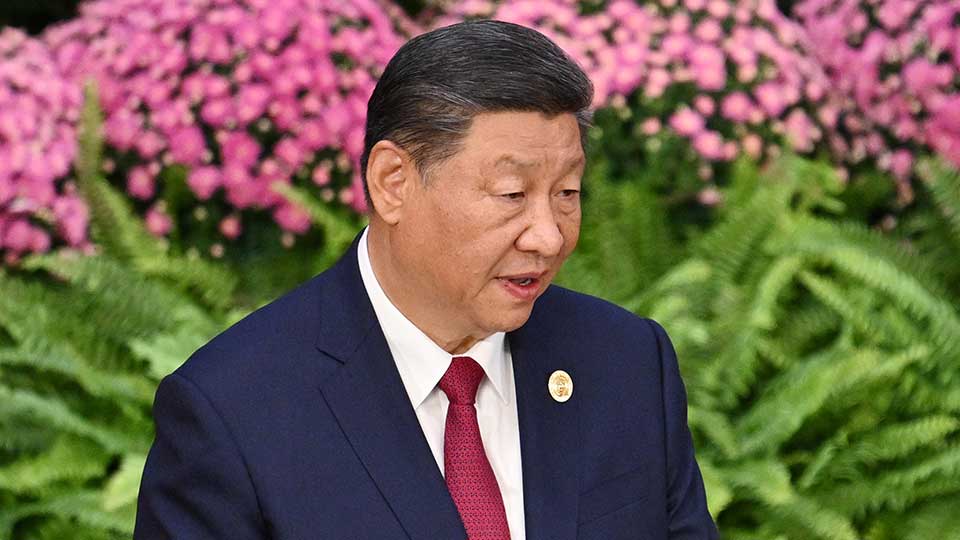
Chinese President Xi Jinping’s highly anticipated opening address at the ninth Forum on China-Africa Cooperation summit on Thursday sent a clear message that Beijing remains firmly committed to its strong ties with African governments and intends to deepen its engagement on the continent.
But his speech, delivered at the Great Hall of the People in Beijing, also signaled that the terms of China’s relationship with Africa are going to change.
Those massive resource deals, huge loans, and even bigger infrastructure projects that defined an earlier era of Chinese engagement in Africa have given way to a new, leaner vision that’s more focused on financial and environmental sustainability.
Another notable difference in this year’s speech versus previous FOCAC keynotes was the prominent focus on African priorities, which are currently geared towards employment, training, and agriculture. These key priorities were reflected in the president’s ten action areas for China-Africa cooperation that were outlined in his speech.
Key Highlights of President Xi’s FOCAC Opening Address:
- CHINA’S “ALL-IN”: Just as President Joe Biden made it clear his administration was “all-in” on Africa at the U.S.-Africa Leaders Summit in 2022, Xi also tried to convey that same level of solidarity on Thursday. He repeatedly used the word “jointly” to convey China’s sense of equality and partnership with African countries in their pursuit of development. Xi’s underlying message to his African counterparts was to reiterate that China sees itself as a peer or brother to African countries, in contrast to the U.S. and Europe, which he contends infantilize the continent.
- SHARED PAST: This year’s FOCAC theme centered on a “shared future” between China and Africa, but Xi and other Chinese stakeholders have also strongly emphasized the two regions’ “shared past.” The president began his remarks on Thursday with a stinging rebuke of Western imperialism in Africa that he said “inflicted immense suffering on developing countries.” Earlier on China’s state-run television network CGTN, commentators echoed this theme by repeatedly referencing China and Africa’s “shared past” of overcoming Western colonialism.
- AFRICAN PRIORITIES: At early FOCACs, China largely shaped the agenda and presented it to African delegations as a fait accompli. That is no longer the case, as African negotiators have become increasingly effective in asserting their priorities. Those priorities were clearly evident throughout Xi’s 10-point plan, which focused way more on issues like industrialization, agriculture, health, trade, and energy infrastructure than China arguably would have done on its own.
- CHINESE PRIORITIES: Sprinkled throughout the speech were references to China’s constellation of new international governance architectures. Beijing will likely rely heavily on African countries to validate these initiatives in the international arena. For example, China’s people-to-people exchanges and vocational outreach were framed as part of the Global Civilization Initiative. Similarly, Xi framed Beijing’s development programs as part of the Global Development Initiative while his pledge to boost military assistance will serve as “a fine example of Global Security Initiative cooperation.”
- THE PLEDGE: Towards the end of the speech, Xi revealed what many had been waiting for: how much will China give this time? The headline number is $50 billion, which is a highly misleading figure. $29 billion will be allocated for “credit lines.” That’s all we know. Most likely, those funds will be directed to benefit Chinese firms more than African stakeholders. Additionally, $10 billion will be in “investment” — again, a very vague term that really shouldn’t count as part of a government financial pledge, given that a lot of that investment in Africa will be made by Chinese private enterprises, particularly in the mining sector. And then there’s $11 billion of “assistance,” most likely various forms of foreign aid. But spread over three years; this isn’t very much for a country as large as China and significantly less than the $8 billion of humanitarian assistance the U.S. commits to Africa annually.
